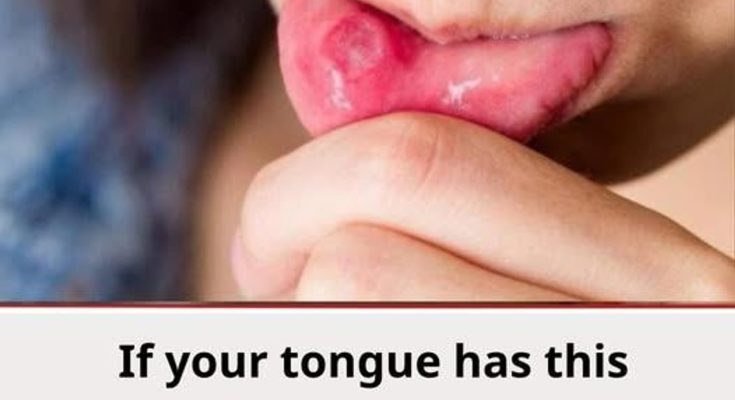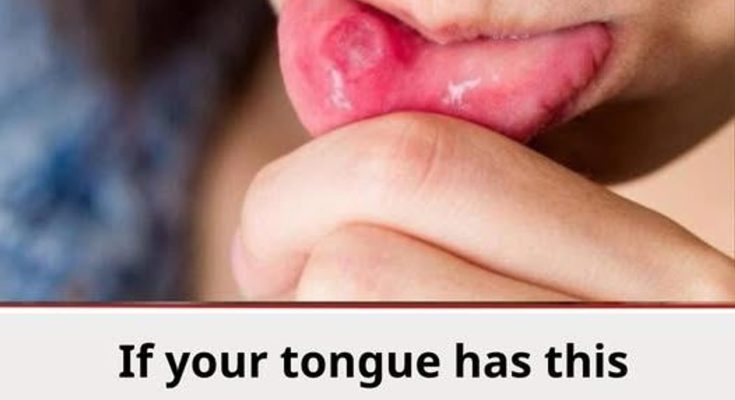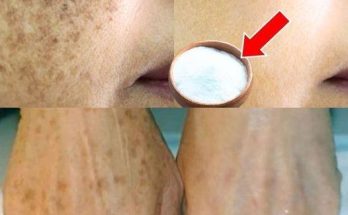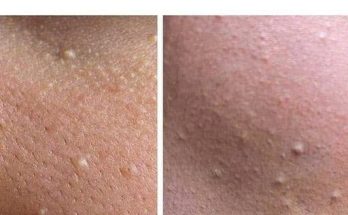If your tongue has this condition, see a doctor immediately
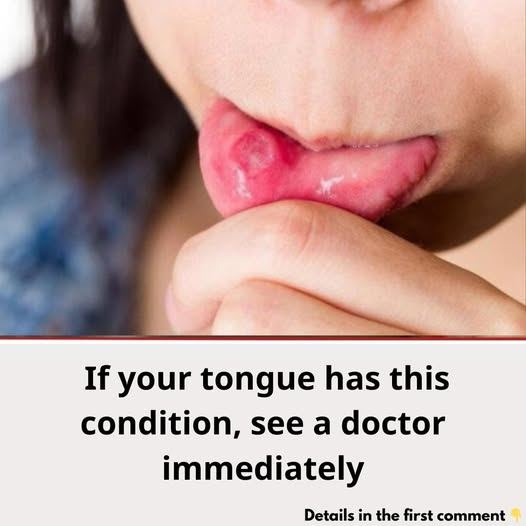
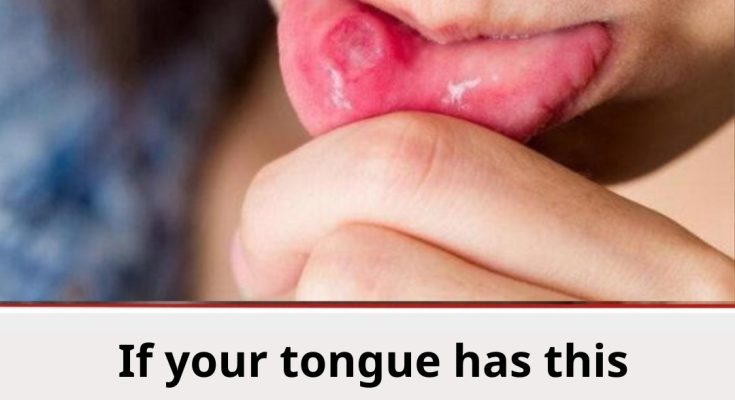
Your tongue is more than just a part of your digestive system—it’s like a health barometer for your body. Often, unusual changes in your tongue can signal serious health conditions, some of which may require immediate medical attention. Ignoring these signs can lead to delayed diagnoses and complications. In this article, we’ll dive into the critical tongue conditions that shouldn’t be ignored and why they demand prompt action.
Understanding the Role of the Tongue in Health

The tongue plays a vital role in your overall well-being. It helps you speak, chew, and swallow, but it also offers clues about your internal health. A healthy tongue is pink, moist, and covered with small bumps known as papillae. Any deviations from this appearance—like discoloration, patches, or sores—could indicate underlying health issues ranging from nutritional deficiencies to serious illnesses like oral cancer.
When to Worry About Changes in Your Tongue
Sometimes, tongue changes are harmless and temporary. However, persistent symptoms often point to more significant problems. Here are the key warning signs to watch for:
1. White Patches That Won’t Go Away
White patches on the tongue may indicate leukoplakia, a condition caused by chronic irritation. While leukoplakia itself isn’t cancerous, it can develop into oral cancer over time. These patches can be flat or slightly raised and are often associated with smoking or chewing tobacco.
If you notice persistent white patches that can’t be scraped off, don’t wait—consult a doctor for a thorough evaluation.
2. Red or Sore Spots That Persist
Red patches or sore spots on your tongue could signal a condition more likely than leukoplakia to turn cancerous. These spots often feel tender or painful and may bleed if irritated. Unlike a temporary sore caused by biting your tongue, doesn’t heal on its own and requires medical attention.
3. Lumps or Thickened Areas
A lump or thickened area on your tongue is another serious warning sign. While benign growths are possible, a hard, unmovable lump might indicate oral cancer. Early detection of such growths can significantly improve treatment outcomes.
4. Tongue Pain or Ulcers That Last Over Two Weeks
Ulcers or canker sores are common, but if they don’t heal within two weeks or worsen over time, it’s a red flag. Persistent pain or unhealed sores can sometimes be symptoms of oral cancer or other infections.
5. Black or Hairy Tongue
Though it sounds alarming, a black, hairy tongue is often harmless and caused by an overgrowth of papillae. This condition is commonly associated with poor oral hygiene, smoking, or certain medications. However, if it persists despite cleaning, consult a dentist or doctor to rule out underlying conditions.
The Link Between Oral Cancer and Tongue Health
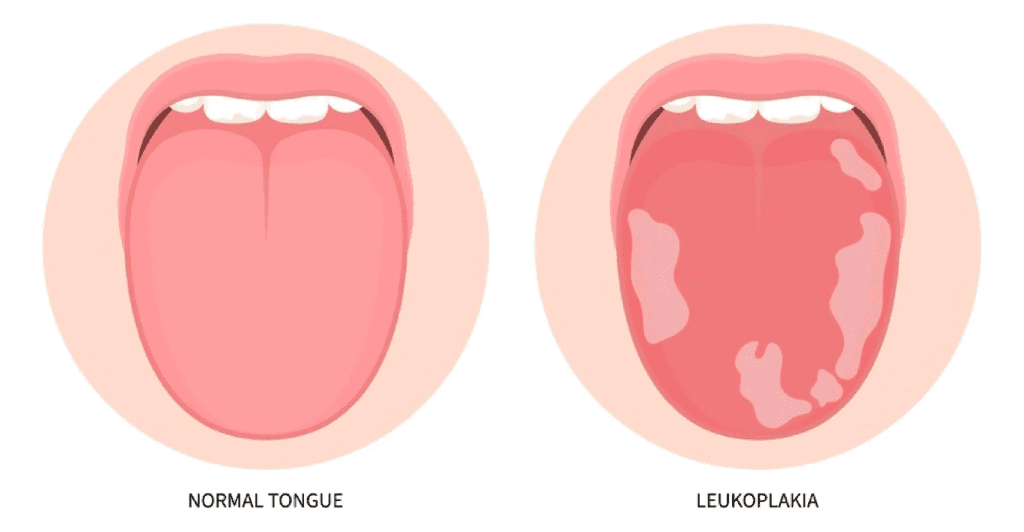
Your tongue is one of the most common sites for oral cancer. Oral cancer often begins as subtle changes in the tongue’s texture or color, which can easily go unnoticed. Understanding the stages and causes of oral cancer is crucial for early detection.
What Causes Oral Cancer?
Oral cancer develops when the DNA in the cells of the mouth and tongue mutates, causing uncontrolled growth. Key risk factors include:
- Tobacco and alcohol use: Smoking and heavy alcohol consumption significantly increase your risk.
- HPV infection: Human papillomavirus, especially HPV-16, is a major risk factor.
- Sun exposure: Prolonged UV exposure can lead to cancer on the lips and surrounding areas.
- Poor oral hygiene: Neglecting dental health can contribute to various oral health issues, including cancer.
Signs and Symptoms of Oral Cancer
Early symptoms include:
- Persistent sores or ulcers.
- Changes in tongue color (red, white, or black patches).
- Difficulty swallowing or moving the tongue.
- Unexplained bleeding or numbness in the tongue.
- Loose teeth or poorly fitting dentures.
How Doctors Diagnose Tongue Conditions
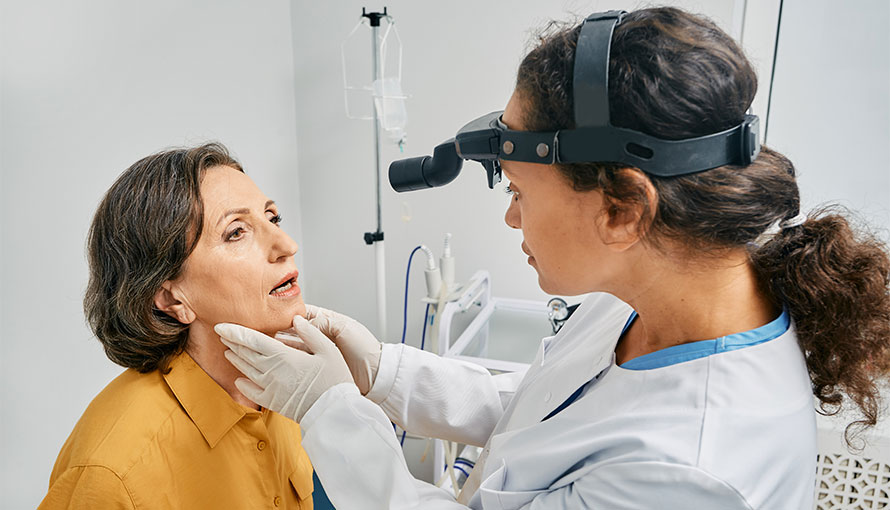
If you notice persistent changes in your tongue, a doctor might use the following diagnostic methods:
1. Biopsy
A biopsy involves taking a tissue sample from the affected area to check for cancerous or abnormal cells. It’s often the most definitive way to diagnose oral cancer.
2. Imaging Tests
CT scans, MRIs, and ultrasounds help determine the size and spread of any tumor. These non-invasive tests are critical for staging cancer and planning treatment.
3. Endoscopy
An endoscope might be used to examine your throat and mouth for signs of cancer that aren’t visible externally.
Can Tongue-Related Conditions Be Treated?

The good news is that many tongue-related conditions, including oral cancer, are treatable if detected early. Treatment options vary depending on the diagnosis but can include:
- Surgery: Removing the affected area or tumor.
- Radiation therapy: Targeting cancer cells with high-energy beams.
- Chemotherapy: Using drugs to destroy cancer cells.
- Immunotherapy: Boosting the immune system to fight cancer.
Preventive Measures to Protect Your Tongue’s Health
While not all tongue-related conditions are preventable, you can reduce your risk by adopting healthier habits:
1. Avoid Tobacco and Alcohol
Tobacco and excessive alcohol use are the leading causes of oral cancer. Quitting these habits can drastically lower your risk.
2. Maintain Good Oral Hygiene
Brush and floss daily, and visit your dentist regularly. Poor oral hygiene can lead to infections and other complications that affect your tongue’s health.
3. Get Vaccinated Against HPV
The HPV vaccine can reduce your risk of oral cancers linked to the virus. It’s most effective when administered before exposure to HPV, typically during adolescence.
4. Protect Yourself from UV Rays
Use lip balm with SPF and avoid prolonged sun exposure to prevent UV-related damage to your lips and oral cavity.
5. Eat a Healthy Diet
A diet rich in fruits, vegetables, and whole grains helps support overall health, including your tongue. Avoid excessive consumption of processed foods and sugary beverages.
Conclusion
Your tongue is like a health detective, providing clues about what’s going on inside your body. Changes in its appearance, texture, or sensation shouldn’t be ignored, especially when they persist for more than two weeks. Whether it’s a white patch, a sore, or a lump, these symptoms could indicate something serious like oral cancer. Early detection and treatment can make all the difference.
Take charge of your oral health by staying vigilant, practicing good hygiene, and seeking medical attention when needed. Remember, it’s better to address concerns early than to wait until it’s too late. Don’t ignore what your tongue might be trying to tell you—it could save your life.
